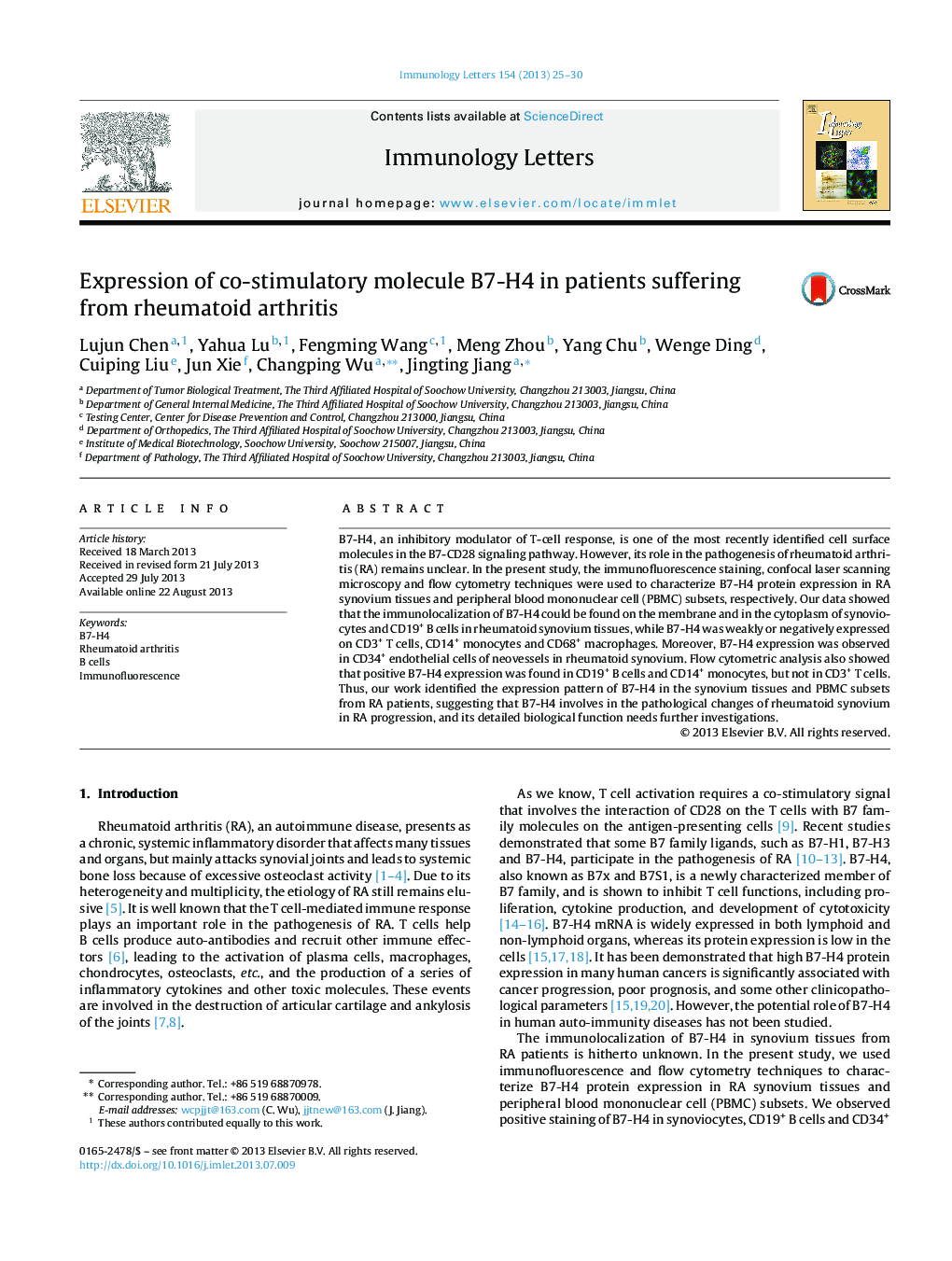| Article ID | Journal | Published Year | Pages | File Type |
|---|---|---|---|---|
| 3355487 | Immunology Letters | 2013 | 6 Pages |
•We characterize B7-H4 expression in RA synovium tissues in synoviocytes as well as infiltrating immune cells.•We also characterize B7-H4 expression in PBMCs subsets in RA patients.•Our results suggest that that B7-H4 involves in the pathological changes of rheumatoid synovium in RA progression.
B7-H4, an inhibitory modulator of T-cell response, is one of the most recently identified cell surface molecules in the B7-CD28 signaling pathway. However, its role in the pathogenesis of rheumatoid arthritis (RA) remains unclear. In the present study, the immunofluorescence staining, confocal laser scanning microscopy and flow cytometry techniques were used to characterize B7-H4 protein expression in RA synovium tissues and peripheral blood mononuclear cell (PBMC) subsets, respectively. Our data showed that the immunolocalization of B7-H4 could be found on the membrane and in the cytoplasm of synoviocytes and CD19+ B cells in rheumatoid synovium tissues, while B7-H4 was weakly or negatively expressed on CD3+ T cells, CD14+ monocytes and CD68+ macrophages. Moreover, B7-H4 expression was observed in CD34+ endothelial cells of neovessels in rheumatoid synovium. Flow cytometric analysis also showed that positive B7-H4 expression was found in CD19+ B cells and CD14+ monocytes, but not in CD3+ T cells. Thus, our work identified the expression pattern of B7-H4 in the synovium tissues and PBMC subsets from RA patients, suggesting that B7-H4 involves in the pathological changes of rheumatoid synovium in RA progression, and its detailed biological function needs further investigations.
